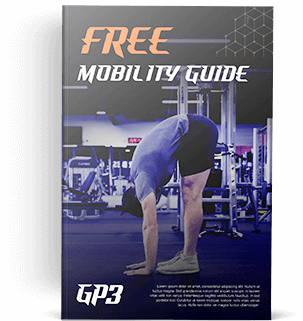Key Points:
- In most areas of life, we understand that “more” isn’t always better.
- And yet, we rarely stop to examine what “enough” might mean from a financial perspective.
- This can leave us stuck on an endless treadmill, suffering through the pursuit of an undefined goal we’ll never reach.
Estimated reading time: 5-10 minutes
Listen to this article on Spotify!
In the past couple weeks, we’ve talked a great deal about games, capitalism, and wealth. We also explored the question, “What does it mean to be good at something?” and determined that finding any sort of objective answer is pretty challenging. Clearly, whoever is best in the world at something is “good at” whatever it may be, but beyond that, interpretation and subjectivity creep in and skew our perceptions. This naturally leaves us with the follow up question, “How ‘good’ do I want to be?” or “How good is ‘good enough’?”
Attempting to answer this for any activity we engage in will help us set realistic expectations and acknowledge inevitable tradeoffs. For example, if I want to be the best guitarist in the world but only feel like practicing for one hour per week, I probably forfeit the right to feel disappointed when my album doesn’t go platinum. So, to bring us back to today’s topic, how does this concept apply to money and happiness?
We all need to explore for ourselves, “How much money is enough?”
I first came across this notion in 2015, when reading an interview with Pete Adeney, also known as Mr. Money Mustache. His claim to fame was retiring from full-time work at age 32, through a combination of optimizing his spending, reliable stock market investing, and developing carpentry skills. It was through reading dozens of his articles that I learned a simple formula for financial independence.
A) Your annual spending
minus
B) current expenses related to working (like dry cleaning for suits and gas for a daily commute)
times 25
= your retirement number.
I’ll grant, I’m oversimplifying this a bit, and there’s nuance required depending on your risk tolerance and desire to do any sort of paid work once your 9 to 5 career is over. But historically speaking, if you build up a nest egg, invest most of it in a portfolio designed just to match the stock market’s returns, and only withdraw 4% of the money per year, you have a 90%+ chance of dying with more money than you started.
This blew my 25-year old mind. It made retirement, something that seemed incredibly far away and fuzzy, as concrete as merely achieving a number, timelines be damned. Even after only a couple years working in corporate pharmaceuticals, I knew a decades-long career at a desk was not for me, so I was inspired to start aggressively saving and investing as much as I could.
However, there was one key difference between me and Mr. Money Mustache.
I had zero desire to eat only home-cooked meals for the rest of my life, attach a wagon to my bike for a trip to the grocery store, or learn plumbing rather than call a plumber if a pipe burst. However, shortening my commute as much as possible, canceling cable, and only buying new clothes once or twice per year? Sign me up. Those didn’t even feel like sacrifices.
Instead of ruthlessly examining my spending of every frivolous dollar, I set myself saving and investment benchmarks. These became my monthly financial priorities. Whatever was left after achieving those and meeting my monthly needs was free to be spent, guilt-free, on whatever I wanted.
And this is the key point here.
Each one of us has a level of material comfort with which we’d be perfectly satisfied.
Whatever that level is, by the way, is completely up to each of us. Perhaps you need to fly first class to make air travel bearable, and can’t fathom slumming it with just a backpack on Spirit Airlines like I do. And hey, cut Spirit some slack. They’re not as bad as people say. Or perhaps having a new car every couple of years genuinely brings you joy. Great! As long as we consider these things and take a look at our spending, nobody can impose their vision of how we “should” be living or spending our money.
Well, unless you’re in a committed partnership. That will likely require some discussions, sacrifices, and compromise for your mutual benefit, but that’s no surprise!
Anyway, the question, “What is enough, for me?” is vitally important because if we don’t ask it, we’ll likely find ourselves stuck in an endless pursuit of “more.” We’ll never be satisfied with what we have and will continue exerting ourselves in the hopes of achieving a nebulous goal with no actual indicator of when we’re there. Pretty bleak and empty sounding, huh?
The alternative is to figure out exactly what we do need and want, whatever that number may be in terms of actual dollars, and pursue it with focus and determination. Plus, no one says this can’t change. While “lifestyle inflation” can be an endless financial trap, sometimes life’s circumstances genuinely call for more money. You may decide your family needs extra cash for your kids’ college funds, or perhaps you become so passionate about a particular charitable cause that you want to have the ability to donate millions of dollars to it someday. And you know what, that’s also great!
To account for these changes, we can try revisiting what “enough” means for us and our families on an annual basis.
But, why aren’t we taught about “enough?”
“If this is such a crucial question,” you might be wondering, “why weren’t we encouraged to ask it or taught about it in school?” Well, leaving aside the woeful state of financial education most of us receive in public and even private schools, the very concept of “enough” runs counter to a key collective Western identity.
And what is that identity? Capitalism.
In general, it can be summed up as a belief that goes something like this. “I should be allowed to make and spend as much money as I feel like, and anything that limits either of those abilities is an unacceptable restriction on my freedom.”
In keeping with that theme, our economic system is predicated on a pursuit of constant growth, so encouraging consumers to think before they buy or consider whether there’s such a thing as too much material comfort isn’t ideal. But there’s obviously a limit. Let me borrow an example from the aforementioned Mr. Money Mustache. Not many of us desire so much “convenience” that we’d prefer to lounge in bed all day, using a catheter and a bedpan to avoid the “effort” of going to the bathroom, do we?
Obviously that’s a bit extreme, but the point stands.
Everywhere else in life, we understand that there can be too much of a good thing.
So, regarding money, it’s on each of us to figure out what “enough” means, because few authority figures will encourage us to undergo such an examination.
Now, I’m not suggesting this is due to any sort of nefarious conspiracy controlled by a series of shadowy, all-powerful families who want to keep the huddled masses poor. It’s simply because the belief that spending money is good, necessary, and expected is so deeply ingrained that we rarely, if ever, question whether it could be a “bad” thing to have more.
In fact, in Luminous Darkness, a book I recently read by Buddhist author Deborah Eden Tull, she cites a survey where people had an easier time imagining the end of the world than the end of capitalism. And don’t get me wrong, while our economic system needs plenty of reforms, I’m not advocating for the end of capitalism. It’s kind of like what “the great they” say about democracy. “It’s the worst form of government…except for all the other ones.”
However, I do think our mental wellbeing, physical health, and the planet’s longevity would benefit if we stopped exempting money from the “more is not always more” rule.
Endless growth (especially at high speed, every single year) isn’t remotely sustainable in any arena, so it’s not something we should strive for in the financial sector. And intuitively, we know this, because we have a word for this type of growth in the body.
It’s cancer.
And as simple as it may sound, all we need to do to get started from an individual perspective is ask ourselves one question. “For me, personally, what is enough?” I’m not saying this will be easy. Money can be a highly triggering issue because it’s closely correlated with the two things the ego avoids most, a sense of lack and a fear of death. But, these uncomfortable feelings will only be overcome by self-examination, not passively becoming stuck on an endless, unattainable pursuit of “more.”
Before you go, I’d love to hear from you. When’s the last time you examined your own spending habits? Have you considered what “enough” means to you? What’s one thing you’ve realized you can live without that many people seem to want? Reply to this email and let me know!

